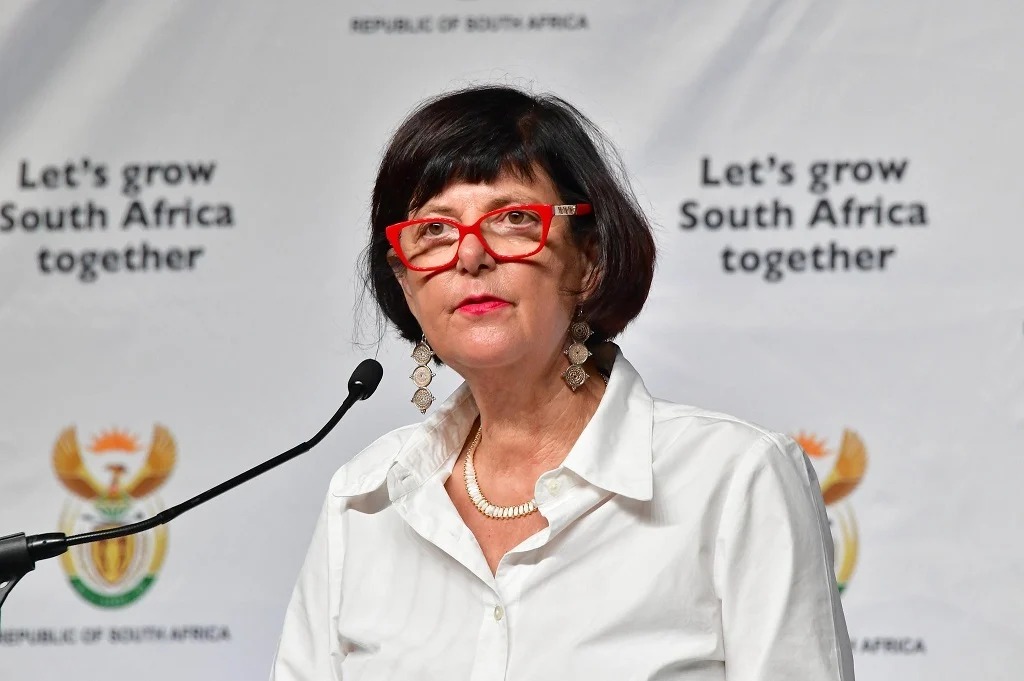News
Inside the RAF’s Legal Meltdown: Minister Exposes Unqualified Leadership

A warning from the top
South Africans are used to hearing about the Road Accident Fund and its financial troubles. This time, however, the concern goes deeper than budgets or backlogs. Transport Minister Barbara Creecy has revealed that the organisation’s legal department is operating under leadership that does not hold a law degree. Her comments were made during a parliamentary exchange that has since captured public attention across the country.
For many, the revelation felt almost surreal. The RAF is an institution that handles some of the most sensitive and life-altering claims in the country. It manages complex litigation, disputes, and accountability issues. Yet the unit responsible for its legal architecture has been described as suboptimal, under-skilled, and in urgent need of rebuilding.
Inside Parliament’s tough questions
Creecy was responding to queries from Freedom Front Plus MP Philip van Staden when she shared her concern. She explained that outsourcing legal work had become too expensive and that rebuilding internal expertise was now unavoidable. Her comments landed at a time when the RAF is already the subject of scrutiny from the Standing Committee on Public Accounts.
The controversy stems from the RAF’s legal fight with the Auditor General over accounting standard policies. Suspended RAF CFO Bernice Potgieter told the inquiry that the legal battle had cost the fund roughly 11.1 million rand. This contradicted earlier comments by Creecy, who initially conveyed that the fees had exceeded 22 million rand.
When ActionSA MP Alan Beesley pressed for clarity, Creecy acknowledged that her earlier figure was incorrect. She confirmed that the actual cost was 11,381,619.66 rand and that the amount was still awaiting taxation. Her apology underscored the seriousness of the matter, especially given the public frustration over ongoing RAF controversies.
Why the RAF went to court against the Auditor General
To the general public, the idea of a state entity suing the Auditor General feels almost bizarre. Beesley asked Creecy how long this confrontation would continue and whether proper accounting standards would finally be used.
Creecy described what she called a horror show and shared that she had instructed the new interim board to end the litigation. She reminded Parliament that only the Accounting Standards Board can authorise changes to accounting standards. Suing the Auditor General cannot force such changes.
She told MPs that she had previously advised the RAF board and CEO to withdraw the court case and follow the correct process if they truly believed their position was justified. According to her, the organisation is currently trying to untangle the situation and understand the implications of its contingent liabilities.
A roadmap for repair
Beyond the courtroom battles and leadership concerns, Creecy outlined urgent steps underway to stabilise the organisation. The interim board chairperson has informed her of several interventions already in progress.
These include:
• A full assessment of existing contracts to reduce costs.
• A shift from a paper-based claims system to a digital platform so that claimants can receive timely updates.
• Building internal capacity to implement the RAF’s technology strategy.
• A review of the legal environment and the rebuilding of in-house legal expertise to reduce reliance on costly external lawyers.
Two executive-level vacancies are also being advertised. These are the positions of executive for corporate services and executive claims officer. According to Creecy, both roles are essential to restoring operational stability.
Public reaction and what this moment means
Across social platforms, frustration has been loud and immediate. South Africans have questioned how an entity of this size could allow an unqualified individual to lead its legal department. Many expressed disbelief that the RAF had poured millions into a court case that experts never believed it would win.
This moment feels like a turning point. For years, the RAF has battled financial strain, long waiting times, internal tension, and public mistrust. Now the spotlight has shifted to structural and leadership issues inside the organisation itself.
Creecy’s unusually frank explanation signals a more transparent approach, one that suggests the new interim board is being pushed toward real accountability.
A complex future, but a possible reset
The RAF still faces a long road to recovery. Untangling legal disputes, clarifying accounting standards, improving technology systems, and filling critical vacancies are only some of the challenges ahead. Yet the minister’s intervention offers a rare sense of direction. Her message is clear: the RAF cannot continue the way it has been operating.
For claimants, lawyers, and the broader public watching closely, the hope is that a stronger, more capable RAF may finally emerge from this difficult chapter.
Follow Joburg ETC on Facebook, Twitter, TikT
For more News in Johannesburg, visit joburgetc.com
Source: IOL
Featured Image: News24















